Pride returns a decade after Swissair collapse
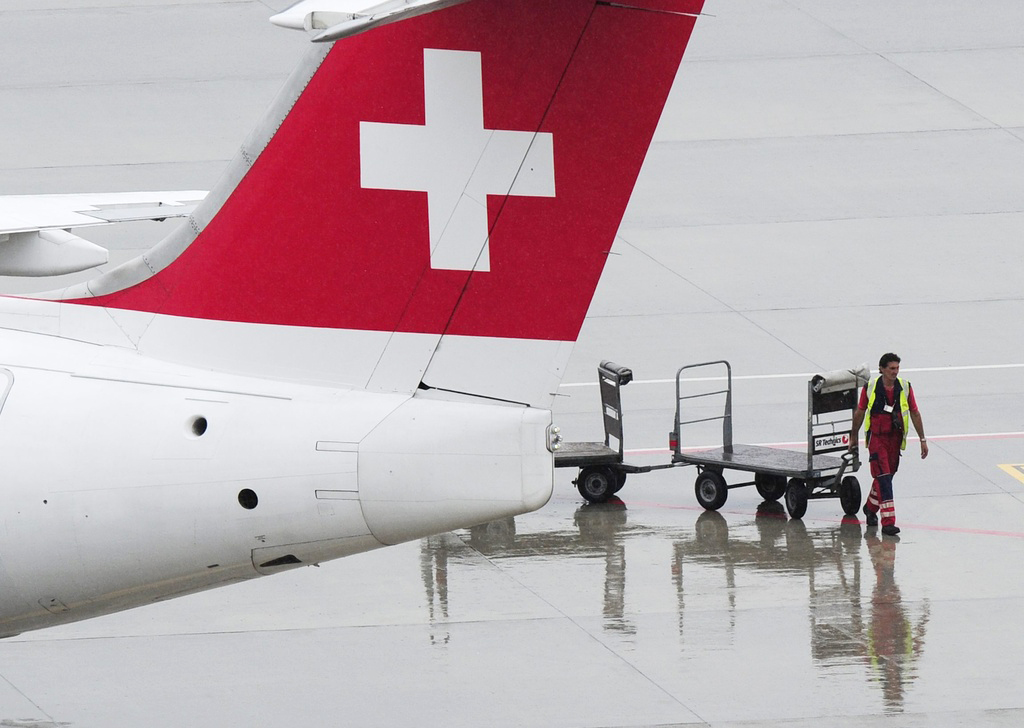
The recent success of Swiss International Air Lines has restored faith in Switzerland’s national carrier, but not erased the trauma of Swissair’s grounding.
Ten years ago, on October 2, the Swiss carrier collapsed under a mountain of debts, sparking national anger and soul searching. Its successor, Swiss, endured a rocky early ride, but is now tasting success after being rescued by Germany’s Lufthansa group.
Under the wing of Lufthansa, Swiss survived the financial crisis and boom in oil prices and is now one of the most commercially successful airlines.
Operating profits more than doubled in the first six months of this year to SFr129 million ($142 million), while the full year of 2010 saw profits of SFr368 million. Compared with the rest of the airline industry, including Lufthansa, these figures represent robust performance.
The figures have impressed Andreas Wittmer, head of the Center for Aviation Competence at St Gallen University. As a successful multinational company, Swiss now attracts admiration from the public.
Misty-eyed romantics
But Swiss can never elicit the same nostalgic feelings of national pride as Swissair, according to Wittmer and other observers.
While many Swiss travellers still go misty-eyed at the sight of the national flag on the aircraft’s tail fin – a design that will be upgraded from October – the new airline fails to stir the same patriotic feelings as Swissair.
“Flying no longer conjures up the same romantic feelings as in the past,” Wittmer told swissinfo.ch. “Airlines have had to remodel themselves commercially in the face of increased competition and a tougher environment and they are no longer being perceived in the same light.”
Swiss pilot Thomas Steffen, who also serves at the trade union Aeropers, believes there is a subtle difference in the perception of the airline domestically and abroad.
Steffen has noticed that far fewer Swiss people want to become pilots for the airline, with most new recruits coming from abroad, especially Germany.
What’s in a name?
That may have had something to do with a long running pilots’ pay dispute that ended in July. But Steffen also believes the demise of Swissair has put off some locals who are deterred by the knowledge that even a national airline can go bust.
“[But] outside Switzerland, people do not differentiate between Swissair and Swiss – they see the Swiss flag logo and do not recognise that it is a different company,” Steffen told swissinfo.ch. “Many passengers still think that they are flying with Swissair.”
The Swiss flag has a resonance with international passengers, standing for quality and reliability, according to Steffen. And the fact that Swiss is now German-owned makes no difference to most travellers, inside or outside the country.
“Swiss has become successful in its own right and generates a lot of money for the parent company,“ he told swissinfo.ch.
“Swiss is a pearl in the Star Alliance and Lufthansa did not change the name or identity of the airline because they realised they could profit from the brand.”
Swiss International Air Lines is forging ahead with a new dynamic identity rather than wallowing in the past, according to the airline’s spokesman Jean-Claude Donzel.
“We have a new generation of staff coming up as the old guard of former Swissair employees reach retirement,” he told swissinfo.ch. “These new young people are developing a new spirit.”
Good image
The airline hopes that this spirit, allied with some traditions left over from the past, will convince Swiss people that their national carrier is very much alive and robust.
“Our colours and the name of our company are still very similar,” he said. “The nation is proud of having its own airline. Not so long ago many people thought this would never be possible.”
The wounds of 2001 appear to be healing – Switzerland also had to contend with a fatal fire in the Gotthard tunnel and a mass murder by a gunman at Zug’s parliamentary buildings that same year.
Efforts to assuage public anger at Swissair’s grounding with an expensive criminal prosecution of former board members proved fruitless. All 19 executives were acquitted in 2007.
But Swiss International Air Lines appears to have escaped from being tarred with the same brush as its failed predecessor.
The new airline has consistently scored progressively higher marks among the Swiss public in annual polls on the image of corporate brands, conducted by market research group gfk.
Swiss is now one of Switzerland’s most respected brands, according to gfk’s Claudia Merkel.
“In general, Swiss has enjoyed very good reputation in the last couple of years, with a constant upwards tendency;” she told swissinfo.ch. “Compared to the whole transport industry [such as Swiss Railways], they are above average.”
Swissair planes were grounded on October 2, 2001, after the company had been in business for 71 years.
The downturn in the aviation market after the terrorist attacks of September 11, 2001, proved the last straw for the heavily indebted Swissair, which folded the following year.
The airline collapsed because it over-extended itself by buying stakes in numerous loss-making airlines, including Belgium’s Sabena and Poland’s Lot, in an attempt to form its own airline alliance.
The remains of Swissair and the regional carrier Crossair were brought together in 2002 to form the new national carrier Swiss.
After a shaky start which threatened the existence of the fledgling airline, Swiss was taken over by Germany’s Lufthansa in 2005.
Swiss now appears to be on solid ground, booking full-year profits of SFr368 million in 2010, compared with SFr146 million in 2009.
Swiss flew 14.2 million passengers in 2010 – up 3% on the previous year. Seat load factor of these flights increased from 80.1% in 2009 to 82.3% in 2010.
Total flights operated increased 3.6% to 141,405 flights in 2010.
The company has a global workforce of 7,521, around 100 more than for the same period a year earlier. The company plans to recruit a further 200 cabin crew and 100 future pilots before the end of 2011.
From 2012, the airline will expand its fleet of 81 planes with delivery of five Airbus 330-300s, two Airbus 221s and two Airbus 320s.

In compliance with the JTI standards
More: SWI swissinfo.ch certified by the Journalism Trust Initiative








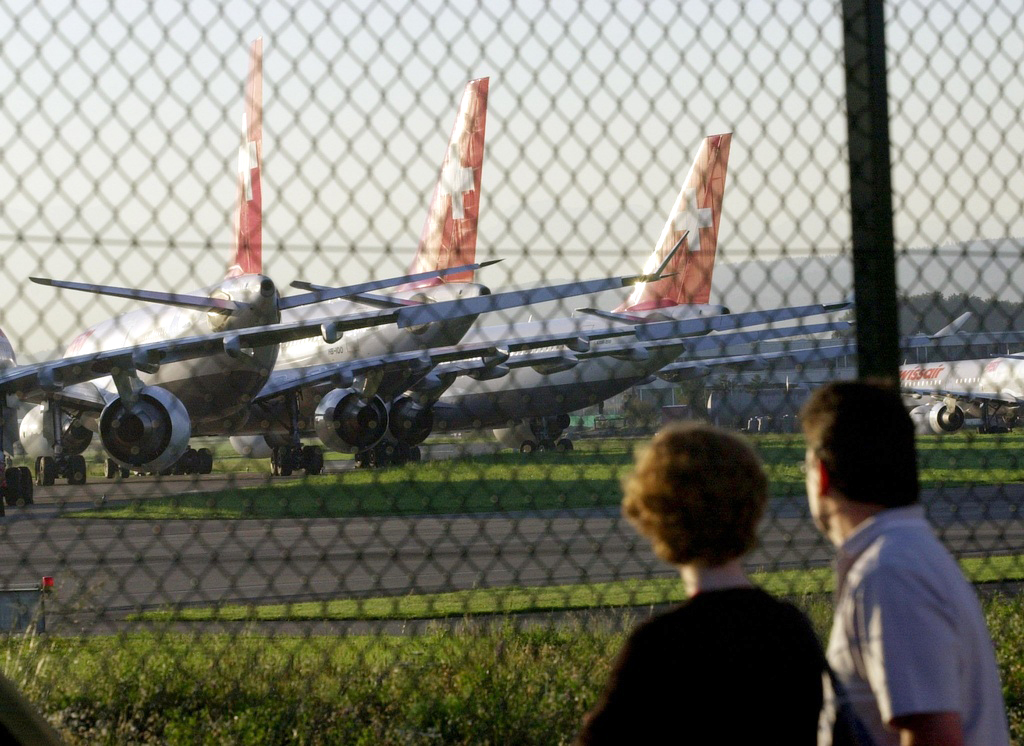
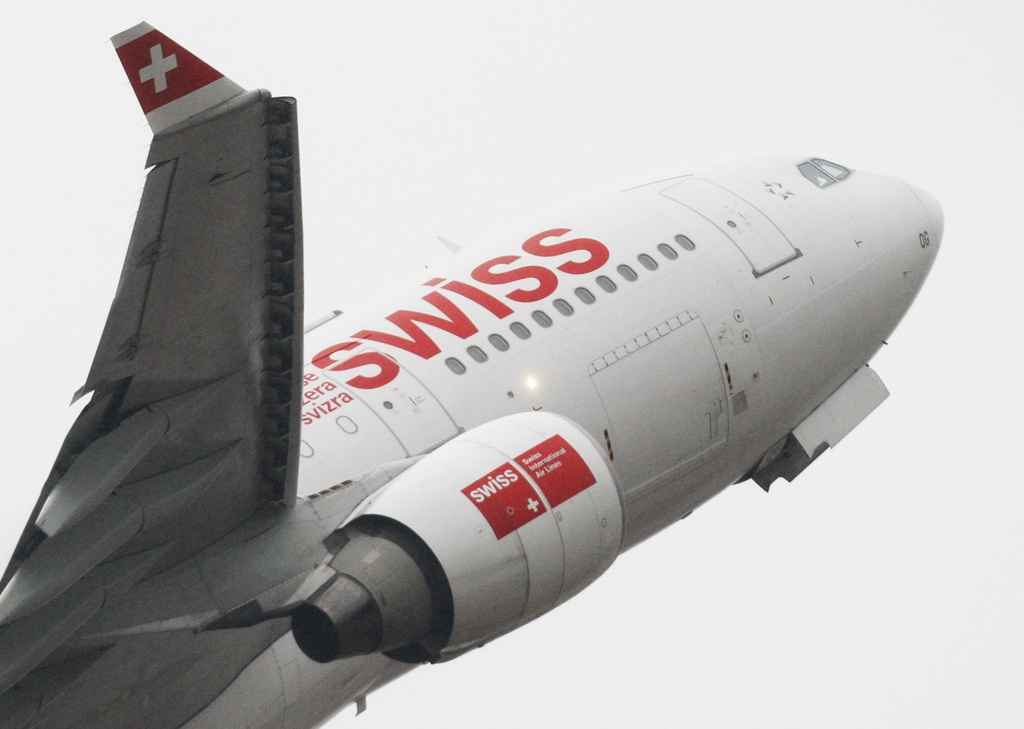
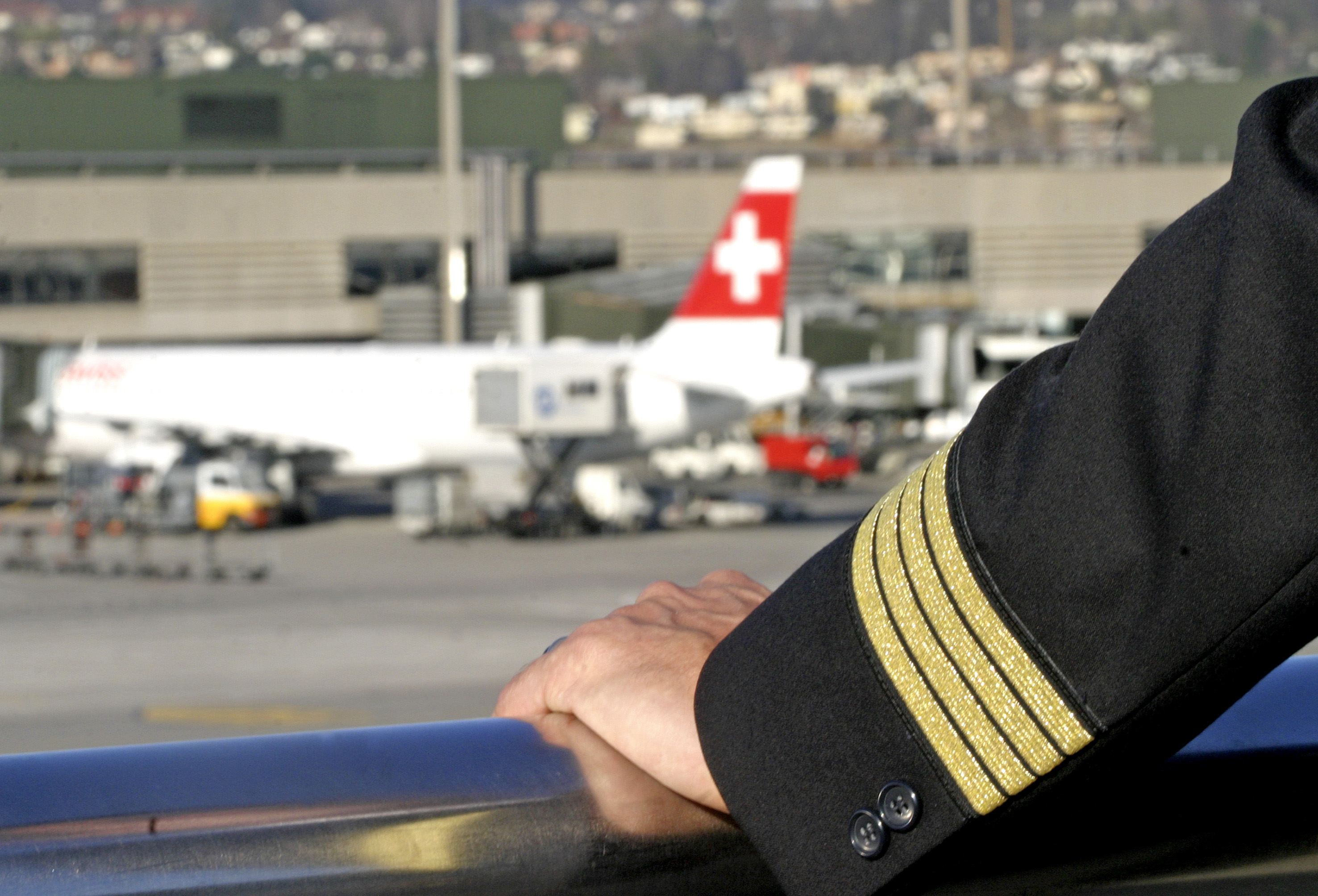

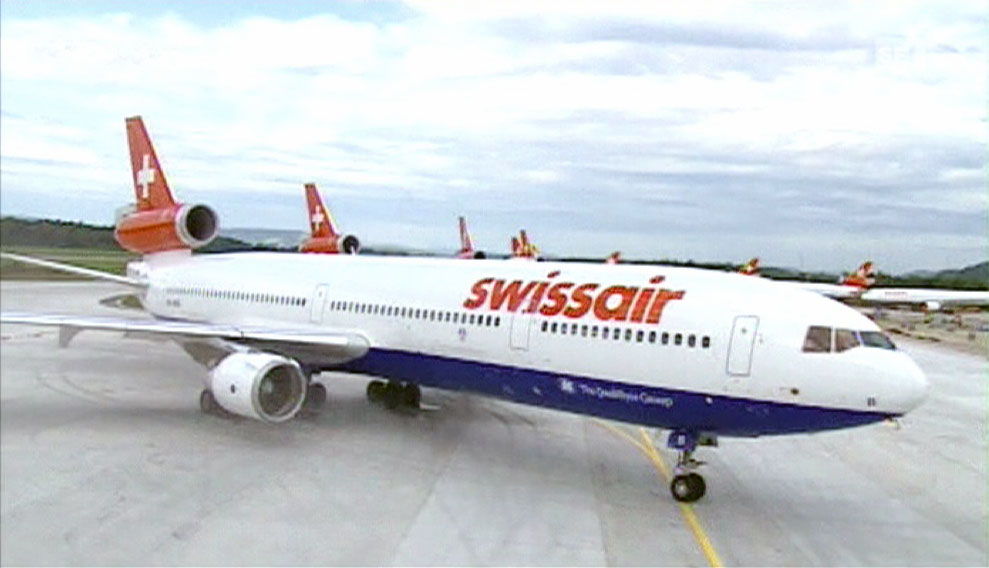
You can find an overview of ongoing debates with our journalists here . Please join us!
If you want to start a conversation about a topic raised in this article or want to report factual errors, email us at english@swissinfo.ch.